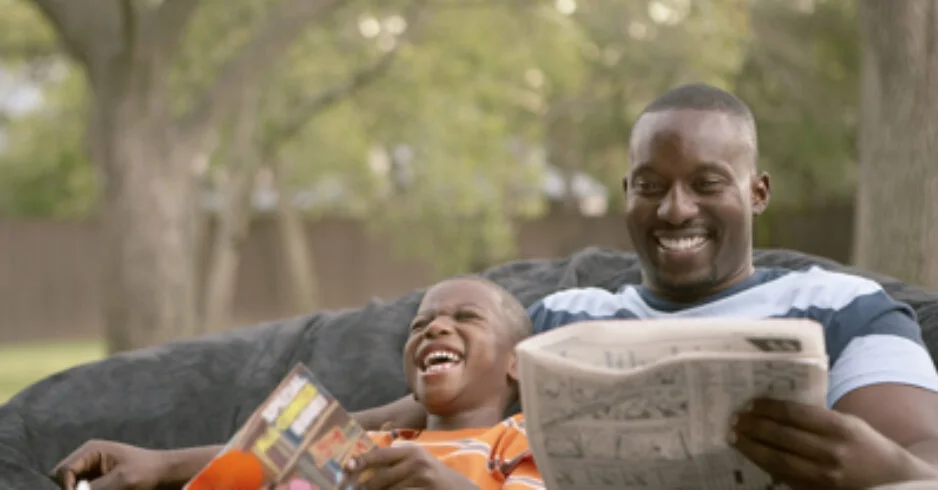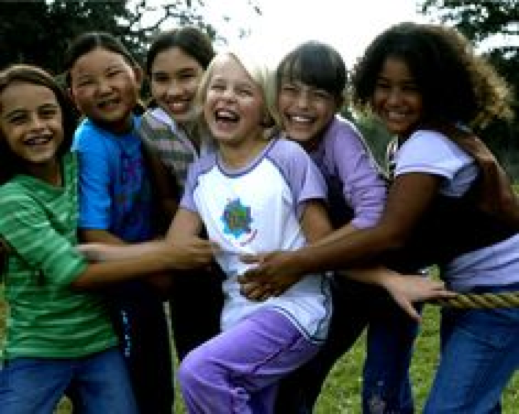As I was doing research for blog ideas, I came across this photo and editorial online Get Your Child Reading and Thinking About Sports at www.atlantaparent.com. I just love this photo of a child, laughing and holding a book he is reading, while he is sitting next to his father, who is also laughing and reading. It’s tender, happy, and shows the importance of reading, which is the key focus of As the Stars of the Sky Foundation. Spreading the love of reading in every way that is possible – that is our goal and mission.
One of the best ways to get your children to read is to select a subject that they are interested in. If your children are interested in sports, or if you would like to introduce your children to various sports, consider having them read books about sports. There are a plethora of children’s books on sports in general, on specific sports and about famous athletes – from picture books for young children to novels, biographies and autobiographies for older children. The online editorial gives some suggestions of books to read and I provide some website links as well at the end of this blog.
Be sure to set aside time to read the book with your children. If it is a long book, break it up into chapters. Talk with them about each book they read. What did they learn? What was the most interesting part to them? What sport do they like and why? By asking these and other questions, you will help them develop their memory, analytical and word processing brain functions.
Visit the following websites for more recommendations for books on sports:






